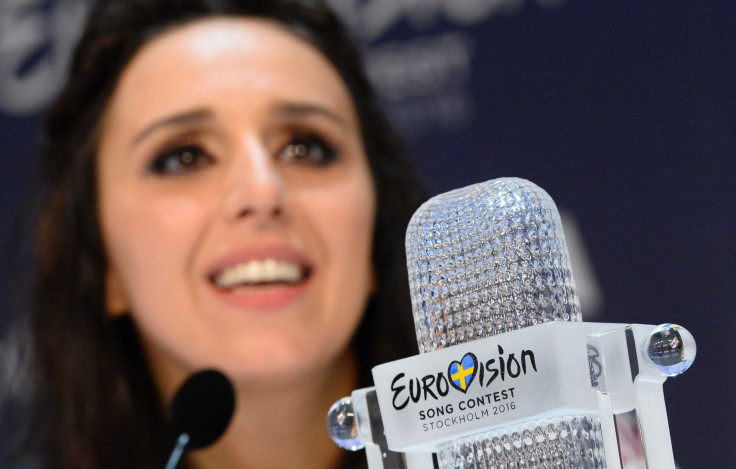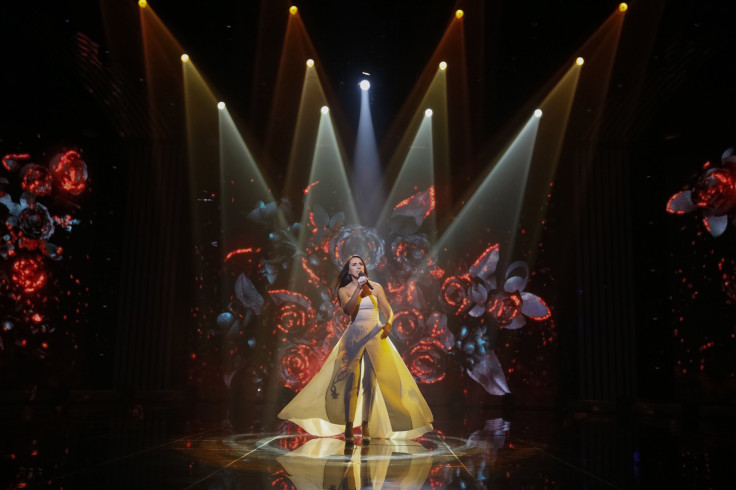Eurovision 2017 Live Stream: Final Running Order, How To Watch And Vote

One of the biggest nights for entertainment in Europe is here. The final lineup for the 2017 Eurovision Song Contest was announced Thursday, even though some fans on Twitter were upset that Ireland and Australia didn’t make the cut. Like every year, 26 performers were chosen to compete in the final round. Since the winner was from Ukraine last year, the competition is slated to take place in Kyiv. The final round of the Eurovision Song Contest is finally here. The entertainment will kick off Saturday at 9 p.m. Central European Summer Time, which translates to 3 p.m. EDT. The goal of the song contest is to celebrate diversity.
READ: Eurovision 2017 Organizers Say Banned Russian Singer Can Compete
The grand finale can be seen through live stream footage here. It’s through their YouTube account. Last year, the video was reportedly unable to be watched in the U.S.
Check out the list of countries that made the final cut below:
1. Israel
2. Poland
3. Belarus
4. Austria
5. Armenia
6. The Netherlands
7. Moldova
8. Hungary
9. Italy
10. Denmark
11. Portugal
12. Azerbaijan
13. Croatia
14. Australia
15. Greece
16. Spain
17. Norway
18. United Kingdom
19. Cyprus
20. Romania
21. Germany
22. Ukraine
23. Belgium
24. Sweden
25. Bulgaria
26. France
The song contest, which stretches continent-wide, was originally started in 1956. The thing that makes it such a sensation and reverent today is that viewers are able to vote on the winner, the same way it worked with “American Idol.” But it isn’t all about the audience. Half of the final outcome is determined by the judges. Viewers are given 15 minutes to vote. They can do so by phone, app and text messages. The thing that makes Eurovision interesting is that people cannot vote for their own country.
For the 2016 edition of the competition, Ukrainian contestant Jamala took the top prize. Jamala, who was born Susana Jamaladinova, wowed the world with her performance of “1944.” She is a Jazz singer who writes her own music, plucking musical inspiration from genres like world music, rhythm and blues, and gospel. Of course, Eurovision wasn’t her first competition. Jamala, 33, competed for the first time in 2009 during the global talent competition New Wave.
Her winning song, “1944,” was criticized by Russian President Vladimir Putin and Russia's government. They alleged her song, which she wrote, was anti-Russian and in violation of Eurovision rules. The lyrics in the song talked about Crimean Tatars being deported by the Soviet Union, as ordered by Josef Stalin. The song, ever relevant in 2016, mirrored Crimea being annexed by Russia in 2014.
While deserved to win, some accused Jamala of having an unfair advantage since her song was reportedly heard by an audience a year before she competed on Eurovision. Previously preforming a song before the competition is not allowed. Ultimately, it was determined Jamala was not in violation of any rules.
She issued a statement via Facebook when the controversy broke May 2016:
“The Eurovision Song Contest rule (1.2.1a) which states that entries must not have been commercially released before September 1 exists to make sure that the Contest can welcome new compositions each year, and that every song can compete on a level playing field. The purpose of the rule is to prevent wide distribution of any song that might give it an unfair advantage in the competition the following May. In the past, songs that had been publicly available before the deadline, but had not been accessible by a wide audience, had been granted permission to compete in the Eurovision Song Contest by the Reference Group. In the case of Jamala’s “1944” the EBU’s attention has been drawn, after the 2016 Eurovision Song Contest, to a public performance of an earlier version of the song in May 2015. The video of a small concert had only been viewed by a few hundred people before it was discovered in the past few days. The EBU, based on previous decisions in the Reference Group, therefore has concluded that the published video did not give Jamala’s song any unfair advantage in the 2016 Eurovision Song Contest and the song was eligible to compete.”

Follow me on Twitter @mariamzzarella
© Copyright IBTimes 2025. All rights reserved.






















